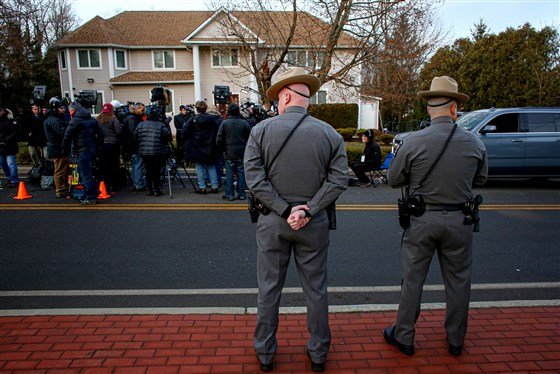
The Los Angeles Times recently reported what to some was an uncomfortable fact. In a front-page story about the horrific attack at a rabbi’s house last week in Monsey, N.Y., the Times reported the attacker was black. It quoted Rabbi Marvin Hier, founder and dean of the Simon Wiesenthal Center and Museum of Tolerance, who said the rash of attacks in the New York area has been perpetuated by African Americans.
On one level, you have to give credit to the L.A. Times for having more journalistic courage than The New York Times. In story after story, the N.Y. Times didn’t identify the attackers as black. Why is this important? As the Talmud states, “knowledge of the illness is half of the cure.” If the Jewish community is to stop this newest round of hatred, it needs the partnership of responsible black leaders. With their help, we can better understand the challenge and find solutions.
However, hiding the identification of any attackers as being black will not solve the problem. (Note: Many mainstream publications and broadcast media have a policy to not specify the race of a suspect unless it is germane to the story.)
L.A. Times reporters Maria La Ganga and Laura King faced a dilemma. This detail didn’t fit into the neat box that says “all anti-Semites are white nationalists.” In response to that dilemma, the reporters contacted Rebecca Pierce, whom the reporters called a Bay Area writer and filmmaker familiar with the intersection of Judaism and challenges of the black community. Pierce is a black Jew and a supporter of anti-Israeli measures such as the boycott, divestment and sanctions movement.
Clearly, Pierce is someone whose views are an anathema to the majority of American Jews. Now, the story had a new angle: Pierce said she was troubled that increased police presence in Jewish neighborhoods would make black residents uncomfortable. The subtle message was that Jews defending themselves might be racist.
“I had thought that after the Times came under new management, the havoc inflicted by its Chicago owners would be undone and the Times would return to the glory days of real journalism.”
Neither La Ganga nor King interviewed a Jewish leader from New York. They didn’t quote a resident of Monsey, where the attack occurred. (The story, which ran in the Dec. 30 edition, had a local angle. La Ganga reported from L.A. and King from Washington, D.C.) The reporters could have sought out black Orthodox Jews in L.A. or New York and asked for their reactions. Instead, they contacted an outlier to Jewish life, someone who lives in San Francisco to comment on black and Jewish relations in New York.
This not journalism. It’s not even “fake news.” It’s a report with the agenda of “Oh, we found out the uncomfortable truth that blacks are attacking Jews, and now we even found a black Jew who says, “Don’t defend yourself because you might upset me.’”
One might wonder if there is a responsible adult at the L.A. Times who would ask, “Is this really the story? Maybe we should interview some of the Jews in New York who were attacked. Why are we searching out an anti-Israel propagandist from San Francisco to opine on hatred in New York? And if we are quoting her, at least, why not identify her as a black Jew whose views are hostile to Israel and most Jews?”
I had thought that after the Times came under new management, the havoc inflicted by its Chicago owners would be undone and the Times would return to the glory days of real journalism. In an era of Facebook feeds and political polarization, we desperately need this. As Californians, we look to the Times to inform us, challenge us and even anger us with quality journalism.
The rise of anti-Semitism is deeply troubling. We desperately need greater wisdom to better understand how to face this challenge. Sadly, the Times failed in its mission as a news outlet to do this, and failed us, the readers.
Rabbi David Eliezrie is the president of the Rabbinical Council of Orange County. His email is rabbi@ocjewish.com.

































 More news and opinions than at a Shabbat dinner, right in your inbox.
More news and opinions than at a Shabbat dinner, right in your inbox.